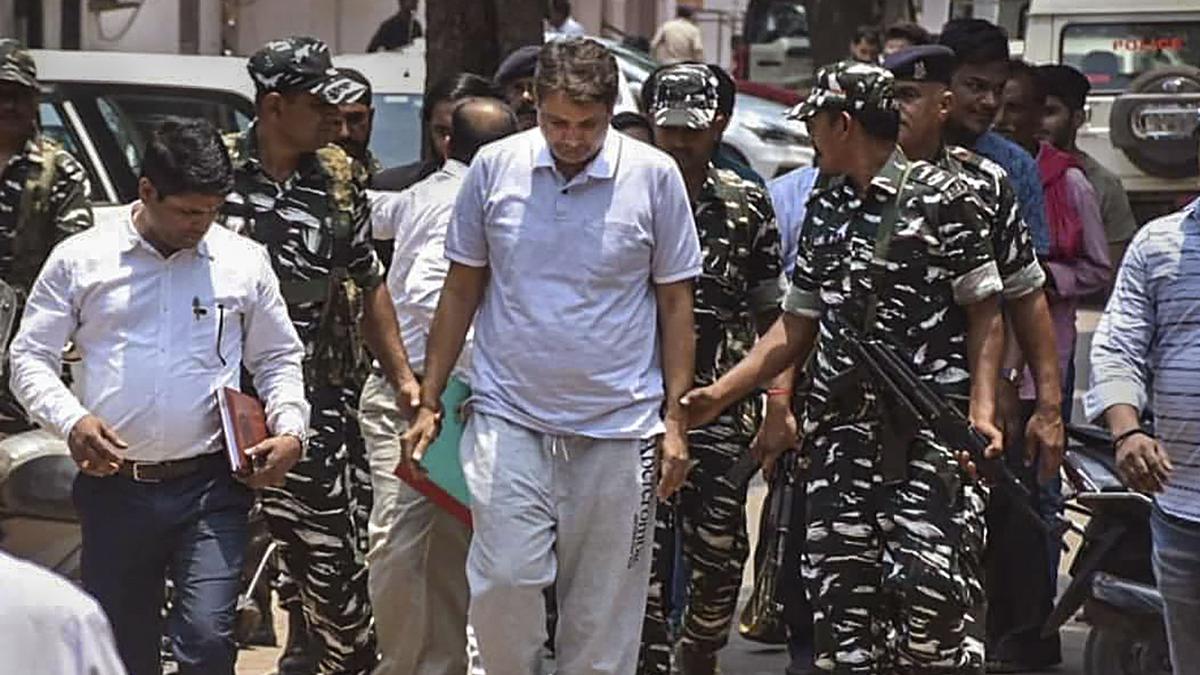
Chhattisgarh liquor scam caused ₹2,161-crore loss to exchequer, says ED chargesheet
The Hindu
In its chargesheet in the alleged liquor scam case purportedly involving bureaucrats and politicians of Chhattisgarh, the Directorate of Enforcement (ED) claimed on Tuesday that the total loss to the State exchequer was to the tune of ₹2,161 crore.
In its chargesheet in the alleged liquor scam case purportedly involving bureaucrats and politicians of Chhattisgarh, the Enforcement Directorate (ED) claimed on Tuesday that the total loss to the State exchequer was to the tune of ₹2,161 crore.
Chhattisgarh liquor ‘scam’ | ED attaches assets worth over ₹121 crore of IAS officer Tuteja, Raipur Mayor’s brother
The scam, hitherto dubbed as the ₹2,000 crore liquor scam, is among the many corruption allegations over which the ruling Congress government in the State is facing the heat with the Opposition using anti-corruption as a major poll plank ahead of the Assembly elections scheduled later this year.
Filing a prosecution complaint before a special court in State capital Raipur, the ED has alleged money laundering in the case in which it has named Anwar Dhebar — brother of Congress leader and Raipur Mayor Aijaz Dhebar; Managing Director of Chhattisgarh State Marketing Corporation Limited (CSMCL) Arunpati Tripathi, liquor businessman Trilok Singh Dhillon, hotelier Nitesh Purohit and Arvind Singh as accused.
ED’s counsel Saurabh Pandey said the prosecution complaint ran into 13,000 pages along with relied-upon documents.
Also Read | Do not create an “atmosphere of fear”, Supreme Court tells ED

“Writing, in general, is a very solitary process,” says Yauvanika Chopra, Associate Director at The New India Foundation (NIF), which, earlier this year, announced the 12th edition of its NIF Book Fellowships for research and scholarship about Indian history after Independence. While authors, in general, are built for it, it can still get very lonely, says Chopra, pointing out that the fellowship’s community support is as valuable as the monetary benefits it offers. “There is a solid community of NIF fellows, trustees, language experts, jury members, all of whom are incredibly competent,” she says. “They really help make authors feel supported from manuscript to publication, so you never feel like you’re struggling through isolation.”

Several principals of government and private schools in Delhi on Tuesday said the Directorate of Education (DoE) circular from a day earlier, directing schools to conduct classes in ‘hybrid’ mode, had caused confusion regarding day-to-day operations as they did not know how many students would return to school from Wednesday and how would teachers instruct in two modes — online and in person — at once. The DoE circular on Monday had also stated that the option to “exercise online mode of education, wherever available, shall vest with the students and their guardians”. Several schoolteachers also expressed confusion regarding the DoE order. A government schoolteacher said he was unsure of how to cope with the resumption of physical classes, given that the order directing government offices to ensure that 50% of the employees work from home is still in place. On Monday, the Commission for Air Quality Management in the National Capital Region and Adjoining Areas (CAQM) had, on the orders of the Supreme Court, directed schools in Delhi-NCR to shift classes to the hybrid mode, following which the DoE had issued the circular. The court had urged the Centre’s pollution watchdog to consider restarting physical classes due to many students missing out on the mid-day meals and lacking the necessary means to attend classes online. The CAQM had, on November 20, asked schools in Delhi-NCR to shift to the online mode of teaching.









